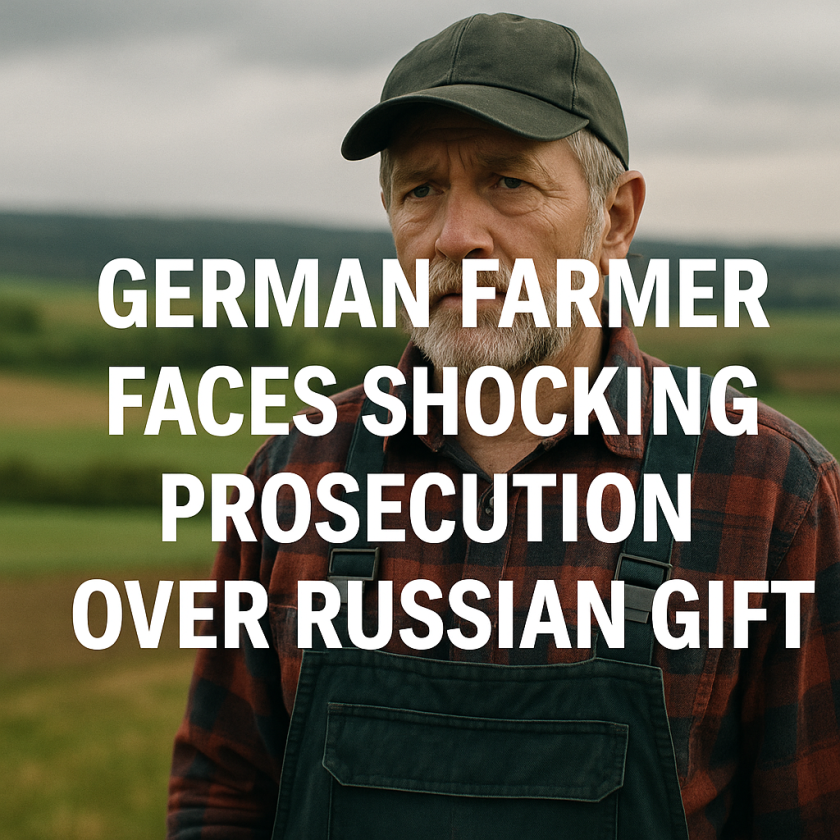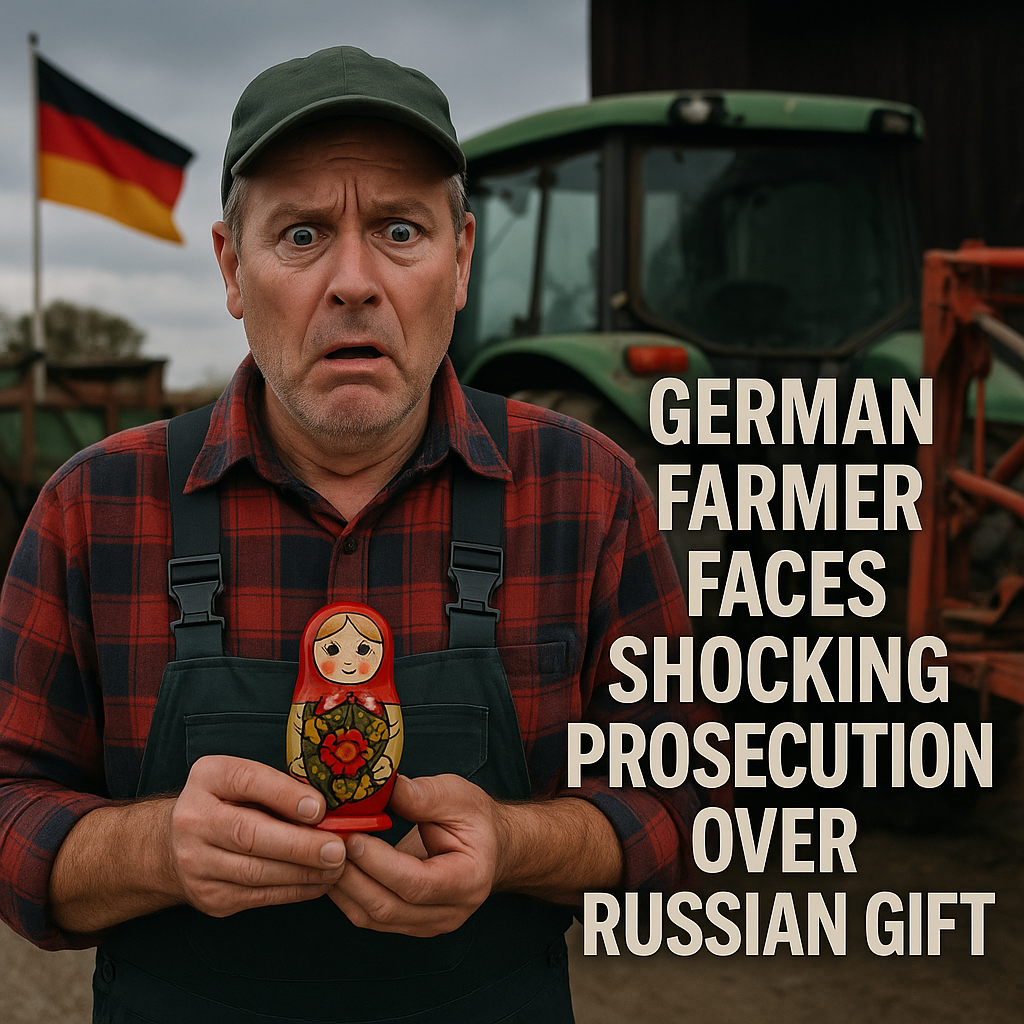German Farmer Faces Shocking Prosecution Over Russian Gift
German Farmer Faces Shocking Prosecution Over Russian Gift
The case of a German farmer facing prosecution for accepting a gift from Russia has sparked considerable debate in the media, raising questions about international relations, individual rights, and the broader implications of punitive measures against foreign entities. This situation highlights the complexities of navigating economic interactions in an increasingly polarized geopolitical landscape.
Understanding the Context of the Gift

A farmer in Germany has found himself in the crosshairs of legal scrutiny after receiving a tractor as a gift from a Russian business entity. While the farmer believed the gesture to be harmless, authorities deemed it a breach of sanctions imposed against Russia. This incident is particularly significant, given the contentious backdrop of the ongoing conflict in Ukraine and global efforts to isolate Russia on many fronts.
The conflicting narratives around this farmer’s case reveal much about public sentiment and the nature of sanctions. On one hand, some argue that gifts, even if sizeable, should be exempt from punitive measures, especially if no immediate harm or intent to harm can be established. Critics of the prosecution point out that criminalizing personal interactions may have a chilling effect on social and economic exchanges, further driving a wedge between nations.
On the opposite side, proponents of the law contend that gifts could be symbolic endorsements of a regime or entity that many view as responsible for instability and suffering. This perspective emphasizes the need for strict adherence to sanctions as a means to pressure governments into compliance with international law. In essence, they argue, accepting such gifts could undermine the very purpose of the sanctions.
The Farmer’s Perspective: An Individual’s Struggle
The farmer, who has chosen to remain anonymous to protect his identity, claims that his intentions were purely practical. As an individual operating in a global agricultural market, he was simply seeking to upgrade his equipment. In his view, the tractor was a vital asset for his business, and the source of the gift did not play a role in his decision-making.
This illustrates a crucial point: the intersection of personal choice and international policy. The farmer’s experience raises an important ethical question: Should individuals bear the burden of government decisions made on a macro level? Supporters of the farmer argue that this prosecution is an undue conflation of individual and state actions, suggesting that he should not be penalized for decisions beyond his control.
However, the legal framework governing sanctions does not allow for much nuance. The German government has maintained a hardline stance, emphasizing the importance of adhering to restrictions aimed at Russian interests. This rigid approach reflects wider global sentiments in the wake of the conflict, where public opinion increasingly favors restrictive measures against perceived aggressors.
A Broader Implication: The Role of Sanctions
The debate surrounding the farmer’s case opens a broader dialogue about the effectiveness of sanctions as a tool of foreign policy. While sanctions aim to coerce political change, their efficacy is often questioned. Critics argue that sanctions can inadvertently harm civilians and create undesirable consequences, as observed in various geopolitical contexts.
Moreover, the enforcement of these regulations poses its own set of challenges. As seen in this case, the lines can blur between what constitutes a legitimate gift and what falls under the umbrella of prohibited transactions. Authorities face the complex task of navigating these gray areas while attempting to maintain public safety and uphold international law.
Navigating the Complexity of International Relations
Ultimately, the case of the German farmer serves as a microcosm of the difficulties inherent in managing international relations in a uniquely polarized world. On one end of the spectrum, there is the desire for global cooperation and understanding, while on the other is the urgent need to respond to actions perceived as hostile or unjust.
In this instance, the farmer’s experience underscores the necessity of clear guidelines and better communication from governmental authorities regarding such matters. As individuals find themselves caught between national laws and their personal choices, it raises an essential call for policymakers to consider the implications of their actions on citizens.
Furthermore, it highlights the need for more nuanced approaches to sanctions that take personal circumstances into account, potentially avoiding scenarios where individuals are unfairly prosecuted for acts that, from their perspective, are innocuous.
In conclusion, while the legal ramifications for the German farmer may unfold in courts, the broader conversations about sanctions, personal liberty, and international relations are just beginning. This situation serves as a crucial reminder of how interconnected our lives are, even in the face of deep-seated geopolitical conflicts.






































